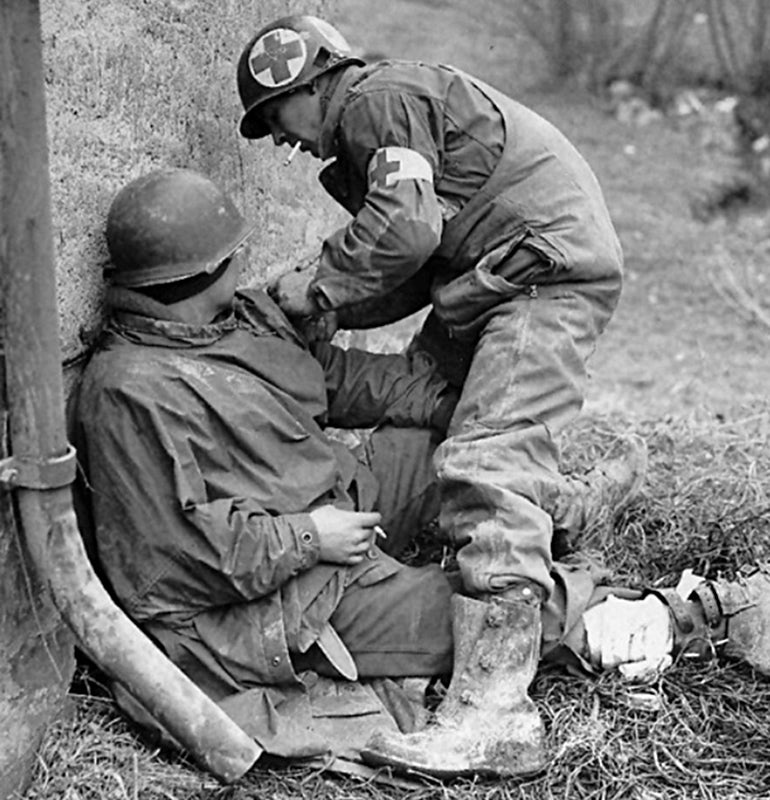Medical Service Corps is an essential part of Army medicine
Medical Service Corps is an essential part of Army medicine
Soldiers of the U.S. Army Medical Service Corps (MSC) paid tribute to its history and accomplishments in supporting the entire Army Family during its 101st anniversary.
For those who are not familiar with the corps and its battlefield and garrison operations, the Medical Service Corps is an essential part of Army Medicine.
“The specialties within the corps include comptrollers, information technology, logistics, optometry, podiatry and pharmacy,” said Col. Aatif Sheikh, the deputy commander for patient support at Tripler Army Medical Center in Honolulu, Hawaii.
The professionals in this career field are behind-the-scenes soldiers with expertise that helps make Army Medicine one of the world’s largest health care providers and the world leader in battlefield medicine. They are helping to promote medical readiness in support of the entire Army.
The MSC is an important national resource with a long and distinguished history, explains retired Col. Vass Ginn, who documented the genesis of the service in “The History of the U.S. Army Medical Corps.”
Thousands of officers have proudly served in its ranks, selflessly supporting the nation’s defense missions in peace and war throughout the world. With varied academic backgrounds and disciplines, these officers are widely recognized and highly regarded leaders in their fields. They represent more than two centuries of growth in medical science, military medical operations and administration, noted Ginn.
“Because there are so many different specialties within the Medical Service Corps, most of the administrative support provided at military treatment facilities (MTFs) wouldn’t exist without them,” said Ginn.
The story of the corps is evolutionary, Ginn said in his article.
“The Medical Service Corps contains 23 different Areas of Concentration (AOCs) that fall under Health Service Administrative or Allied Science officers. The services provided cut across a broad spectrum,” said Sheikh, who is a pharmacist. “The range of skillsets is quite wide,” he said.
“We provide medical care to America’s sons and daughters. In wartime, it is our responsibility to ensure the best possible care on the battlefield so they can return home to their families,” said Sheikh.
“In peacetime, we are always advancing medical care to prepare for the next conflict. Additionally, we take care of the families of our Soldiers. Knowing that they are being provided the best care possible allows those on the battlefield to focus on defeating the enemy, he said.”
Dr. (Col.) Andrew M. Barr, commander, Tripler Army Medical Center and family medicine physician, agreed without the expertise of MSC warfighters, that Army Medicine physicians, Soldiers and civilians, would have a tough time taking care of those in need.
“You come into the Army Medical Department (AMEDD) thinking about your own discipline,” Barr said, “but it doesn’t take long to realize that there are five other Corps out there, other than your own, to help get your job done each and every day.”
“To take care of patients in whatever form that is, requires the help of all of the other medical corps. It takes a collaborative multidisciplinary approach to provide medicine, and what our Medical Service Corps provides for us is all of the support to the physician or the nurse,” said Barr.
Barr and Sheikh explained that leaders in the MSC have become critical leaders of Army Medicine.
“As a young captain, I remember that the MSC only had one general officer. Today, there are several MSC officers who serve in that capacity,” said Sheikh.
He added that growth in World War II was spectacular. The corps increased from less than 100 officers in 1939 to more than 22,000 by 1945.
“As they progress through a career, they really become the backbone of leadership from an officer’s perspective many times inside the AMEDD. And you see it in our general officers. We have a similar amount of doctors and Medical Service Corps officers and nurses and other branches. From a leadership perspective and all of the support they provide for medicine, they are absolutely critical in what they do,” Barr said.
The Army Medical Corps continues to make history.
“Medical workers are important because they alleviate suffering and bring humanity to the battlefield, along with hope and comfort for the wounded and dying,” said Maj. Gen. Patrick D. Sargent, the commanding general, Army Medical Department and Fort Sam Houston center and school.
Sargent, a Panama City native, is the first black commanding general of the U.S. Army Medical Department Center and School, Health Readiness Center of Excellence, at Fort Sam Houston, Texas, and the first black two-star corps chief of the U.S. Army Medical Service Corps.


